As stage directions go, the The Magic Flute opens with a zinger. ‘Tamino enters from the right wearing a splendid Japanese hunting costume.’ That’s right, a Japanese hunting costume. What does that even look like? More to the point, what would a Viennese theatrical costume designer in 1791 have thought it looked like? Surviving evidence suggests that the answer was ‘nothing on Earth’, which is handy because it gives subsequent interpreters a huge amount of licence. Schikaneder’s rag-bag libretto has its quirks and non sequiturs, but it’s an astonishingly robust piece of theatre. I’ve seen The Magic Flute done as panto, as manga, as gothic fantasy and as 1970s British sci-fi. As long as a director preserves the essentials, it’s basically indestructible.
Daisy Evans’s new staging for Welsh National Opera imagines the Flute as a 1980s video game, all grid patterns and neon: Mozart meets Tron, and why not? With its alternative worlds, boss battles and colour-coded puzzles, the world of computer gaming is a natural fit for The Magic Flute, and Loren Elstein’s interlocking, geometrical sets revolve like Tetris blocks, with costumes ranging from mock-baroque to Starlight Express. None of this is troublesome in itself, although you do have to pity the luckless Pamina (April Koyejo-Audiger) as she’s forced into a succession of progressively more hideous outfits. The sets keep moving, flushing blue and pink and orange while Papageno’s puppet birds maintain a relentless, Hitchcock-like onslaught – charming at first appearance, exhausting at the 50th.
Again, there’s nothing here that couldn’t be fixed if the heart of the piece remained intact. Evans has made a new English translation, and her updates are often fun: ‘You got this! You’re amazing!’ chirrup the Three Young Ones (women rather than boys, and they’re delightful). No, the disaster here is the plot – less a translation than a comprehensive rewrite designed to remove elements of the piece that Evans (according to the programme book) finds problematic, and which appear to include the entire Enlightenment project.
There isn’t room here to interrogate her anti-intellectualism (‘logic’ is repeatedly derided; Evans, clearly, has had enough of experts) and her careful erasure of all references to marriage. Her Tamino and Pamina are sexless kidults, resentful of the idea that they have anything to learn from their elders. Wisdom? Reason? Nature? OK, boomer. Evans’s central premise is that the difference between day and night is a social construct, a notion contradicted by the lived experience of anyone who has spent 24 hours on planet Earth.
Well, the great Michael Tanner urges opera reviewers to practise ‘critical charity’, so let’s assume that Evans’s convoluted attempts to assert a moral equivalence between Sarastro (Jonathan Lemalu) and the Queen of the Night (Julia Sitkovetsky) represent a serious attempt to address dramatic problems that she perceives as real – or at least, that can’t be resolved (as they usually are) by imaginative direction or a deft translation. What’s inexcusable is how utterly cack-handed it all is as storytelling. Evans’s rewrite generates acres of long-winded exposition, and introduces glaring narrative howlers. At the end of Act One Monostatos (whose principal crime, in Evans’s version, is being a science teacher) is fired, but he’s right back there and teaching again after the interval.
Musical opportunities are fumbled, too: the Queen of the Night is on stage long before Mozart begins his build-up to her first entrance. (Curiously, Evans retains the scene where the Queen orders Pamina to kill Sarastro – murder, presumably, being no big deal when you’re taking on the Patriarchy.) Worst of all is Evans’s evisceration of Papageno – attractively sung by Neal Davies, but played as a petulant class warrior whose glum demeanour is at startling odds with the brightness of his music. There’s no playful flirtation with Papagena (Jenny Stafford). Evans has decided to bulk out that particular role and duly inserts yet more rambling back story. Until last week, I’d never seen a Magic Flute where these characters failed to get a laugh. The Birmingham audience sat there in near-silence.
In fairness, it’s hard to blame them. There was desultory applause for Sitkovetsky’s set-piece arias, which she sang with pearly brilliance and which did look genuinely spectacular. But that apart – with the exception of Lemalu’s dignified, consoling Sarastro – it wasn’t a stellar night, musically. Both Koyejo-Audiger and her Tamino (Thando Mjandana) sounded squally, and there was beefy, bottom-heavy playing from the orchestra under Frederick Brown. Even the peerless WNO Chorus didn’t sound its usual red-blooded self. Perhaps they, too, felt frustrated by those restless sets, by the leaden pace and by the inept rhymes and flabby moral relativism of Evans’s incoherent, self-indulgent rewrite. Ultimately Mozart carries the day, of course; he always does. The Flute is still unsinkable, or just about. But you leave with a renewed appreciation for the genius of Emanuel Schikaneder.
Got something to add? Join the discussion and comment below.
Get 10 issues for just $10
Subscribe to The Spectator Australia today for the next 10 magazine issues, plus full online access, for just $10.
You might disagree with half of it, but you’ll enjoy reading all of it. Try your first month for free, then just $2 a week for the remainder of your first year.

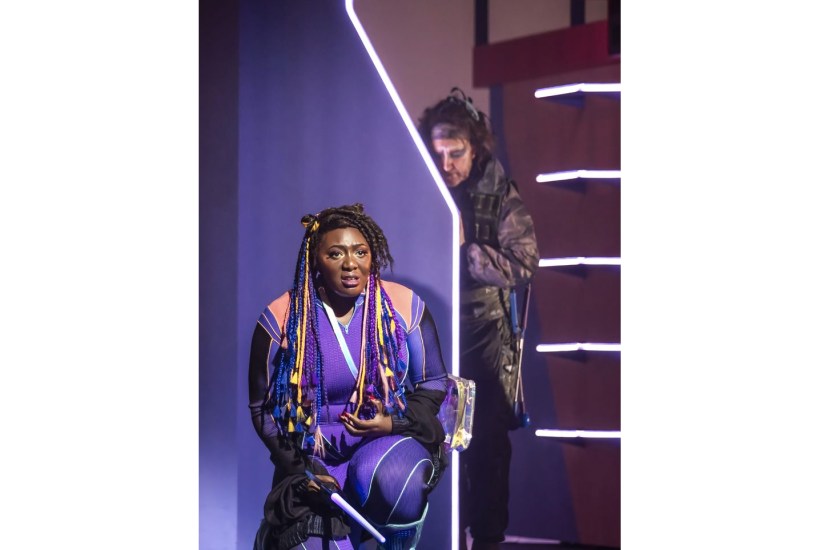
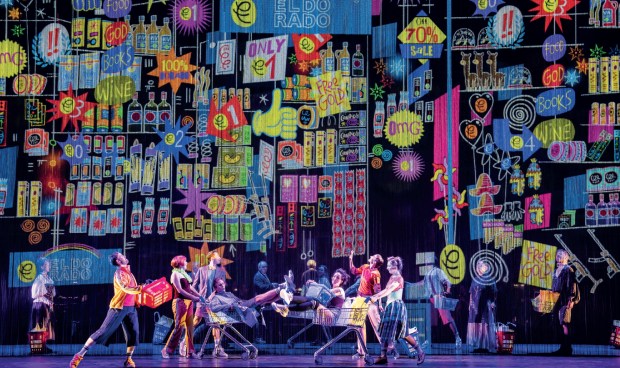
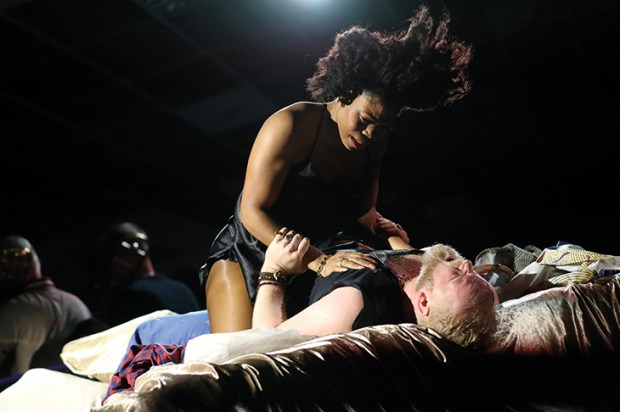
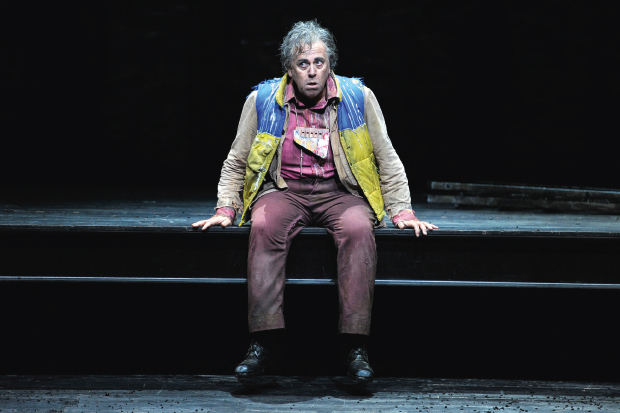

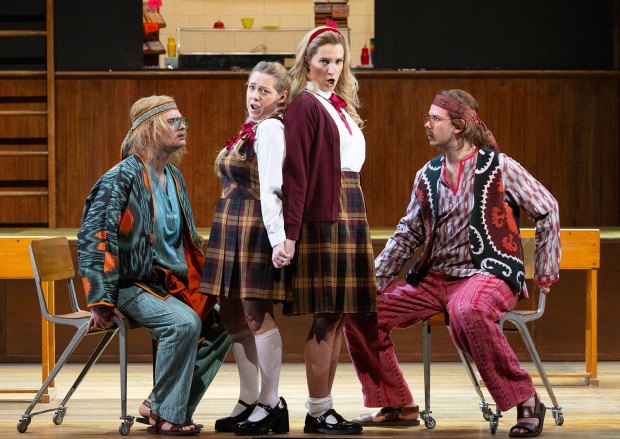
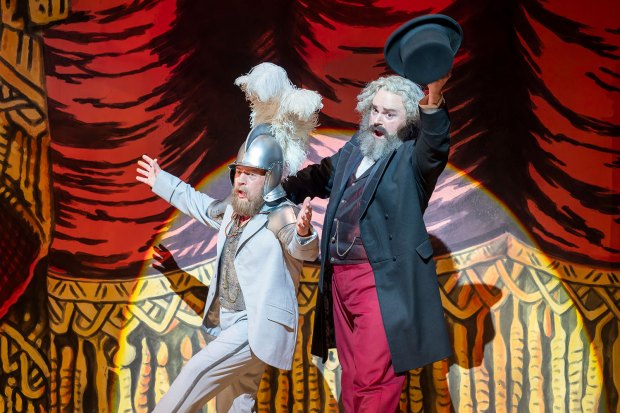






Comments
Don't miss out
Join the conversation with other Spectator Australia readers. Subscribe to leave a comment.
SUBSCRIBEAlready a subscriber? Log in